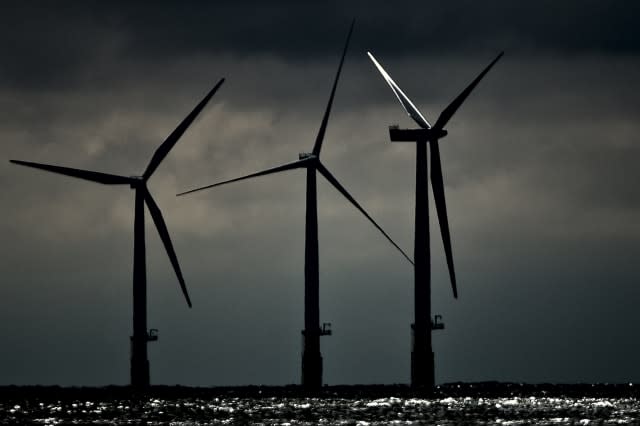Green measures cost you £100 a year

Carbon-cutting measures such as insulating homes and boosting clean electricity added around £100 to household energy bills last year.
The Government's climate advisers said £55 of the average £1,140 energy bill went towards installing efficiency measures such as insulation and new boilers in homes, many of them for families in fuel poverty.
The money helped pay for 200,000 new boilers and heating controls in low income homes or those which were fuel poor, and for wall and loft insulation for 200,000 homes, cutting carbon emissions and saving money on bills.
Households paid an average of £45 towards supporting low-carbon electricity such as wind farms, the Committee on Climate Change said.
Want lower bills? Search for a cheaper energy tariff
A report by the committee estimated that funding for low-carbon power helped cut as much emissions as taking 10 million cars off the road.
Wholeselse price rises are key
Most of the rises in household bills, which have increased almost £500 on average since 2004, are due to rising wholesale gas prices and investment in electricity and gas networks - which would have been needed even without action to tackle climate change, the committee said.
But policies to tackle climate change by cutting emissions are set to add another £55 on bills by 2020 to support further investment in low-carbon electricity.
The committee estimated that between 2020 and 2030, another £75 on the average energy bill would be needed to deliver the switch in the power sector to clean energy to help the UK meet its goals on tackling climate change.
Want lower bills? Search for a cheaper energy tariff
Low-carbon policies will cost about £175 out of a total household energy bill of around £1,305 in 2030, the CCC report said.
Committee chairman Lord Deben said: "Last year, as energy consumers we all helped hundreds of thousands of poorer people to have warmer homes and contributed to real reductions in our emissions in the fight against climate change - all for around £100 a year on the average bill."
'Climate change: 97% likely'
He compared the low-carbon costs to similar amounts people paid for insurance against fire, adding there was a 2% chance of people's houses burning down, but a 97% likelihood of climate change happening.
He said: "Most people, without changing their lifestyle, can do quite a lot of things to reduce their energy expenditure. Some of them are the simplest things, like turning off lights and not boiling more in your kettle than you need to."
Widespread energy efficiency measures such as low-energy light bulbs and better boilers have cut energy use since 2004. Without such reductions bills would have been £165 higher last year, the report found.
Lord Deben backed the introduction of smart meters, which added a cost for the first time last year of around £5, which will give people greater control over their energy use.
Want lower bills? Search for a cheaper energy tariff
Opportunities to improve energy efficiency could cancel out all increases in household bills by 2030, but need stronger policies, the committee said.
Low-carbon measures also add costs to businesses, and are set to push up bills by around 9%-17% by 2020 on 2013 levels, and another 12%-25% by 2030, although for most companies energy is a small part of overall costs, the committee said.
If all the costs associated with higher energy bills as a result of measures to tackle climate change were passed on to consumers, it would add around 70p to a £100 grocery shop and 15p to a £50 meal out by 2020, the report estimated.
'Best way to reduce bills'
A spokesman for the Department of Energy and Climate Change said: "The CCC report recognises that investing in energy efficiency measures is best way to reduce bills over the long term.
"Thanks to Government policies, bills are an estimated £90 lower this year and will be even lower by 2020.
"Our policies are designed to keep the lights on, reduce polluting emissions, cut energy use at the lowest possible cost to gas and electricity customers.
"That's why we have installed energy efficiency measures through schemes likes ECO and Green Deal to over 750,000 homes and a further 600,000 homes are set to benefit by 2017."
{C}{C}

More on AOL Money
Find out if an you could get free insulation for your home
Does an energy supplier owe you money?
New boiler could slash your energy bill



